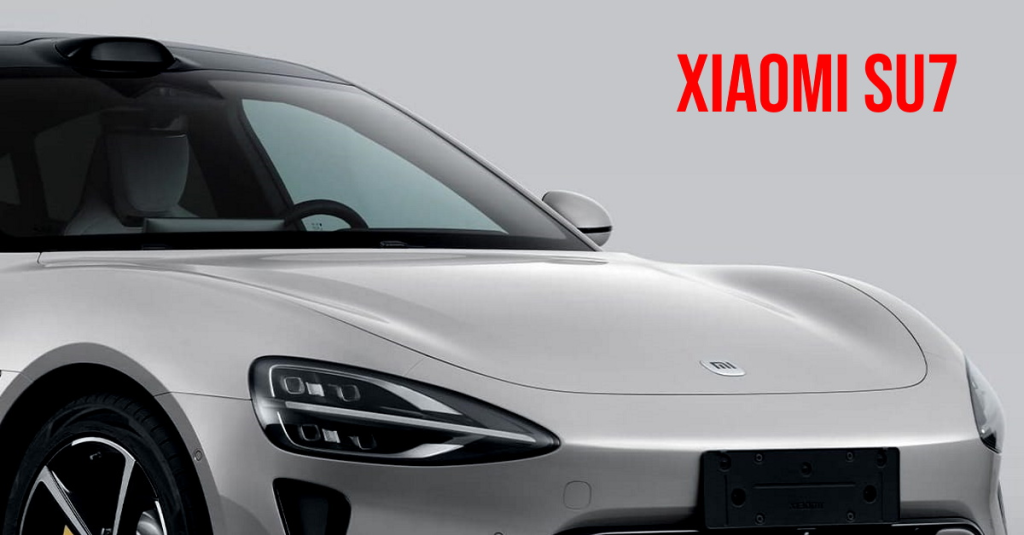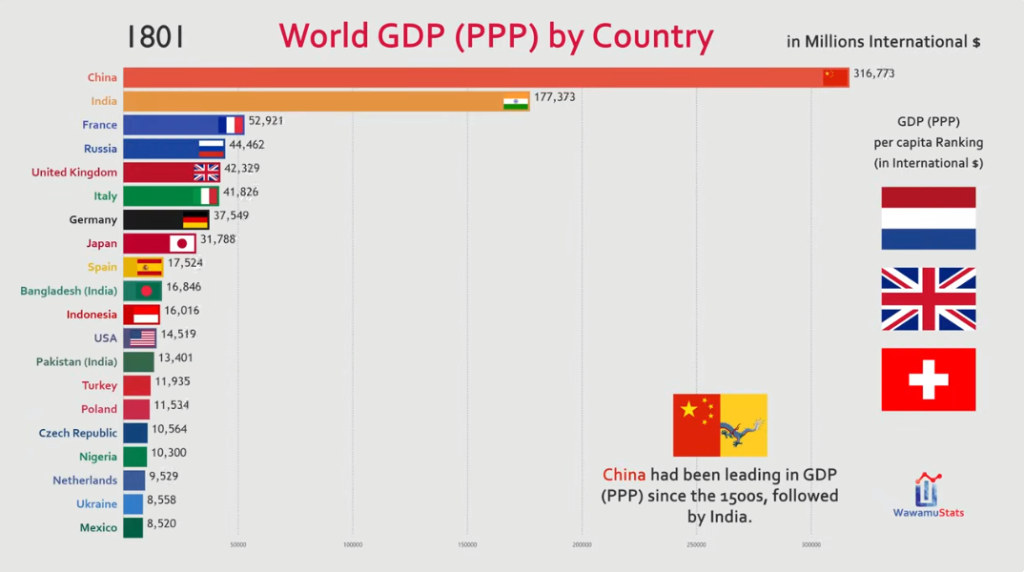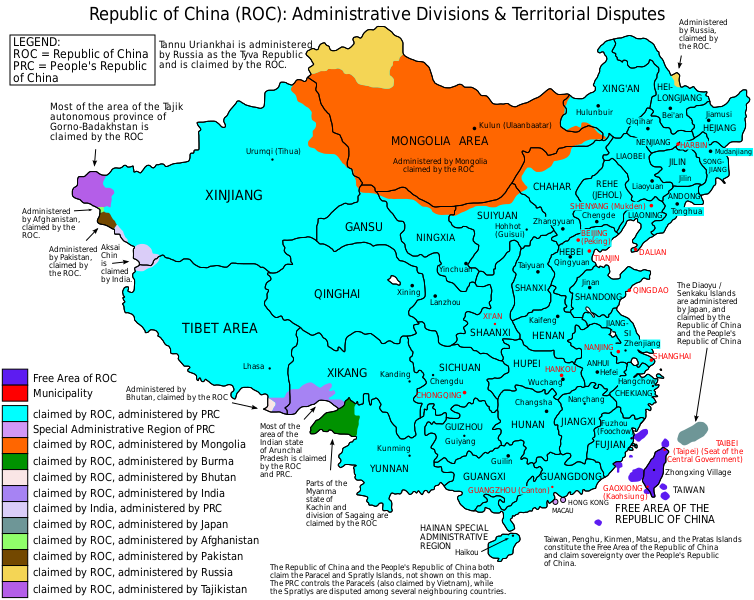Why it’s China’s turn now
China’s rise and America’s decline is less surprising when viewed in wide historical context; but it could also be viewed in a biblical perspective, it’s the Times of the Gentiles:
In Luke 21:24, Jesus speaks of future events, including the destruction of Jerusalem and His return. He says
“And they shall fall by the edge of the sword, and shall be led away captive into all nations. And Jerusalem shall be trodden down by the Gentiles until the times of the Gentiles be fulfilled.”
AsiaTimes by Jan Krikke • April 16, 2024
In the second half of the 20th century, scholars and macrohistorians like Alvin Toffler, Francis Fukuyama and Paul Kennedy developed so-called grand narratives to predict future trends. They covered different aspects of society including ideology, technology, religion and culture.
The macrohistorians used these models to predict major historical changes in economics, power relations and geopolitics. Curiously, none of them predicted that China would emerge as a challenger to US global preeminence.
In the late 20th century, grand narratives fell out of favor. Postmodernists argued that grand or meta-theories overlooked differences between civilizations. By not acknowledging different cultural perspectives, microhistories tended to articulate a Eurocentric view of the world.
The emergence of China as a global power is less surprising when seen in a historical context. For much of recorded history, including the colonial period, China was the world’s largest economy, rivaled only by India. It was not until the end of the 19th century that the US took the top spot.
But few experts could have predicted the speed with which China modernized. The West took two centuries to industrialize, China did it in less than 50 years. In the process, China became the factory of the world and a spider in the web of the global supply chain. Shut down China and much of the world would come to a standstill.
In recent years, China has transitioned from a low-cost maker of cheap household goods to an advanced producer of electronic products and green tech. Industrious labor has been replaced by robots and AI. A new factory for Xiaomi, originally a smartphone maker, produces a new electric car every 76 seconds, or 40 per hour [or 350,400 per year], without being touched by human hands.
British author Martin Jacques chronicled China’s modernization in his international best-seller “When China Rules the World: The End of the Western World and the Birth of a New Global Order.” Jacques predicted that China’s future economic power would drastically alter the global political and cultural landscape, the first such change in 500 years.
Jacques argued that China’s reemergence as a major economic, political, and cultural power is a historical inevitability, requiring a readjustment in the Western view of the world. He writes:
“There has been an assumption by the Western mainstream that there is only one way of being modern, namely by adopting Western-style institutions, values, customs and beliefs, such as the rule of law, the free market and democratic norms.
“This, one might add, is an attitude typically held by peoples and cultures who regard themselves as more developed and more ‘civilized’ than others: that progress for those who are lower down on the developmental scale involves them becoming more like those who are higher up.”
Jaques mentioned Fukuyama, who predicted that the post-Cold War world would be based on a new universalism embodying the Western principles of the free market and democracy.
Fukuyama, in his 1992 paper “The End of History,” argued that Western liberal democracy had won and that all countries in the world, including China, would ultimately embrace Western liberal democracy.
Writing in 1992, Fukuyama did not foresee the budding crisis in Western democracies, the partial deindustrialization of the West, the growing concentration of wealth or the election of the anti-liberal Donald Trump and his “America First” agenda.
Trump launched a trade war with China that has been intensified by his successor Joe Biden. Inexpensive China products had been a boon to American consumers but came at a cost: the loss of millions of jobs and the deindustrialization of major cities in the American heartland.
The trading conflict between the West and China is a repeat on a larger scale of the trading conflict with Japan. In the 1980s, Japan decimated the Western automobile and consumer electronics industry. When it was too late, the West realized Japan had eaten its lunch. The Chinese are now poised to eat their dinner.
Workers and Merchants
In 2001, US president Bill Clinton gave the green light for China’s membership of the World Trade Organization (WTO), the American-led body that regulates global trade.
In exchange for membership, China agreed to reduce tariffs on nonagricultural products and several measures to open up China’s financial market, among them the life insurance and securities industry.
The US government reasoned that China would become politically more liberal if its economy was liberalized. Fukuyama’s “End of History” appeared to give credence to this theory. As it turned out, China liberalized economically but not politically. The Chinese government wanted to keep a firewall between business and government.

A new story
China’s traditional, primarily collectivist culture partly explains its rapid modernization. Chinese civil engineers pioneered industrial methods like prefabrication, standardization, and modularization. The city of Daxing, a metropolis of 84 square kilometers built in the 6th century, was completed in one year.
China became the world’s leading industrial nation by learning from the West. Like Japan before, it took from the West what it found valuable and avoided what did not fit its worldview and values.
In barely one generation, China became an industrial superpower. Today, it dominates globally in 75% of the technologies seen as essential for the Fourth Industrial Revolution.
The US has not been sure-footed in its response to the Chinese challenge. To outcompete China economically would require a major overhaul of government priorities, a difficult task given the influence of neoliberalism and the polarization in US politics.
Cultural communications scholar Bill Kelly, author of “A New World Arising,” points at the dilemma facing the West. “Neoliberalism,” according to Kelly, “led to community breakdown, the alienation of the individual, and the loss of an overriding aspiration that a majority can embrace. This puts the West at a considerable disadvantage in terms of socially mobilizing its people behind government leadership.”
Neoliberalism is the ugly expression of the Merchants’ mindset and a remnant of colonial days. Knowing it can’t compete with China’s industrial giants, it tries to prolong Western military and financial hegemony at all costs. It fights foreign wars on the pretext of protecting freedom and democracy at home, a ruse intended to keep the Workers distracted.
Instead of taking their cue from Francis Fukuyama, the neoliberals should have heeded the warning of historian Paul Kennedy. In his book “The Rise and Fall of the Great Powers,” Kennedy explained that the relative decline of great powers often stems from overstretch. Declining powers extend their military commitments beyond what their economic resources can sustain.
The US is not only overstretched, it is highly in debt, it has a narrow industrial base and its biggest economic rival also happens to be its largest creditor and one of its largest trading partners. Something will have to give, and when it does, the US and its Western allies will need a new story that is in sync with the 21st century.


